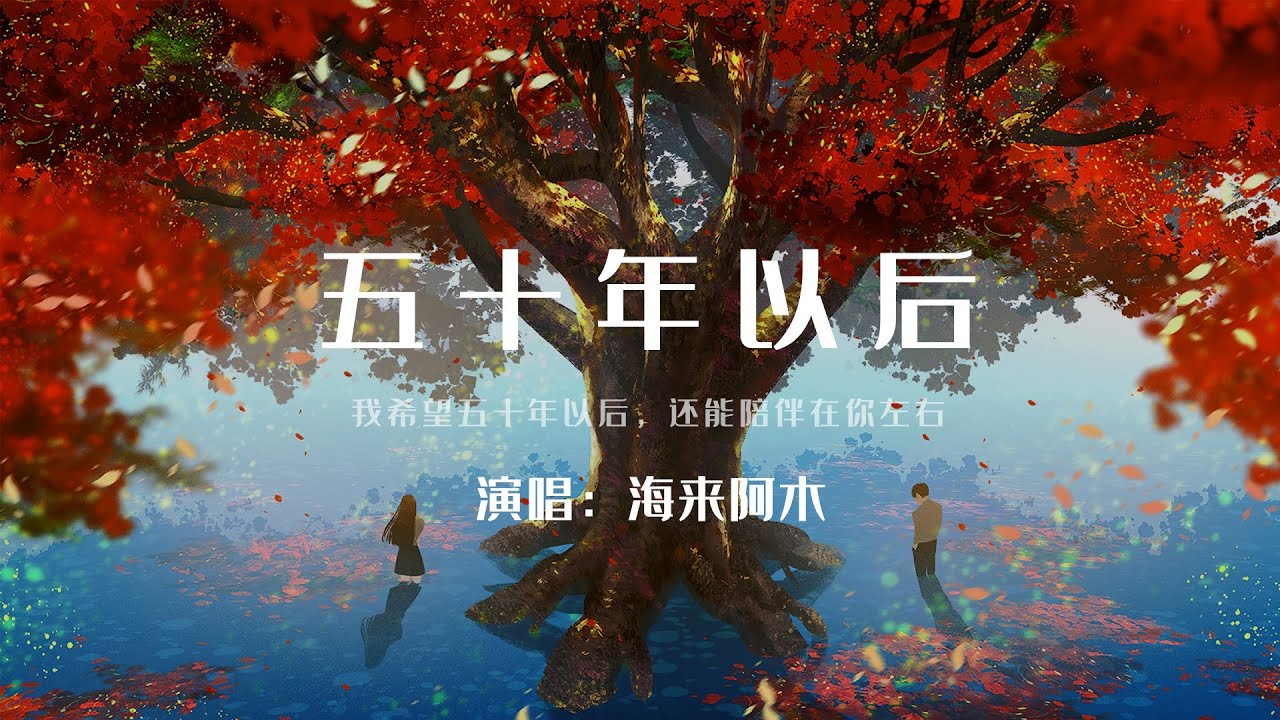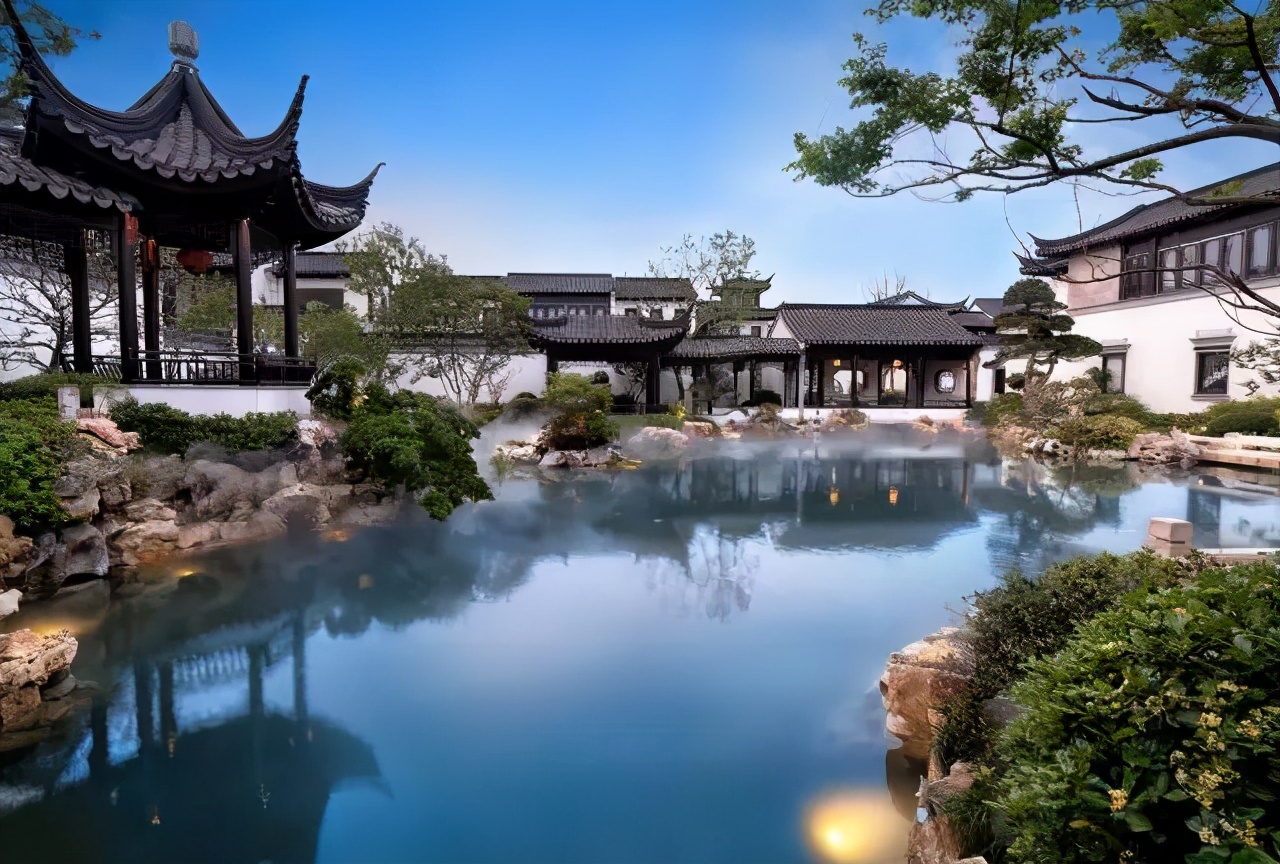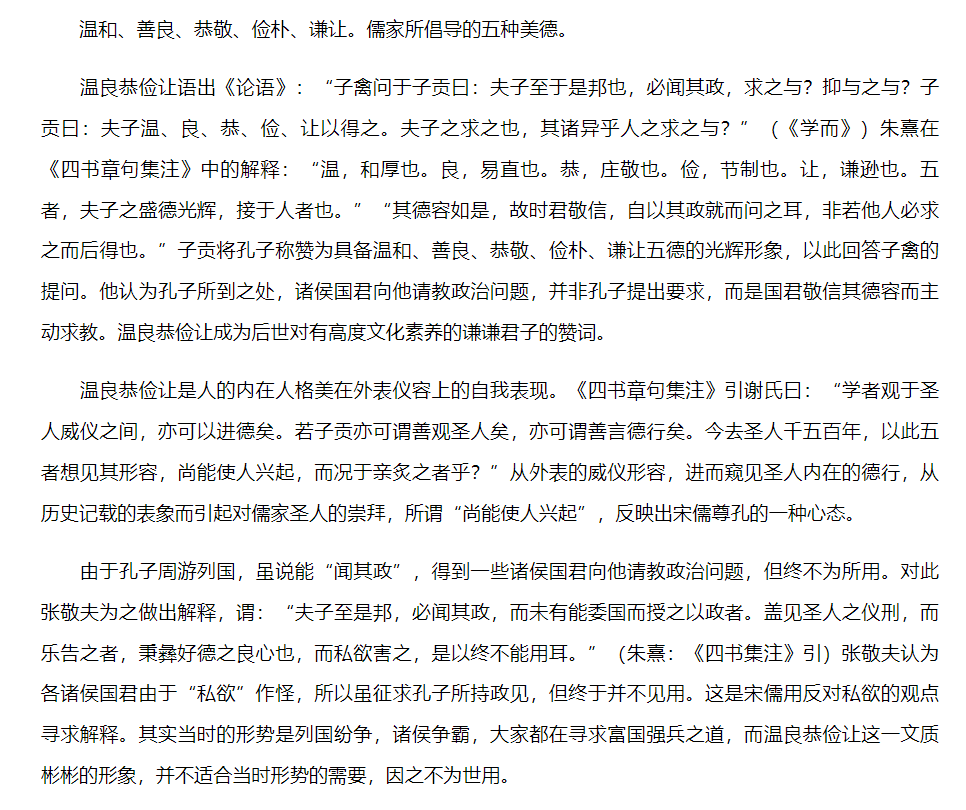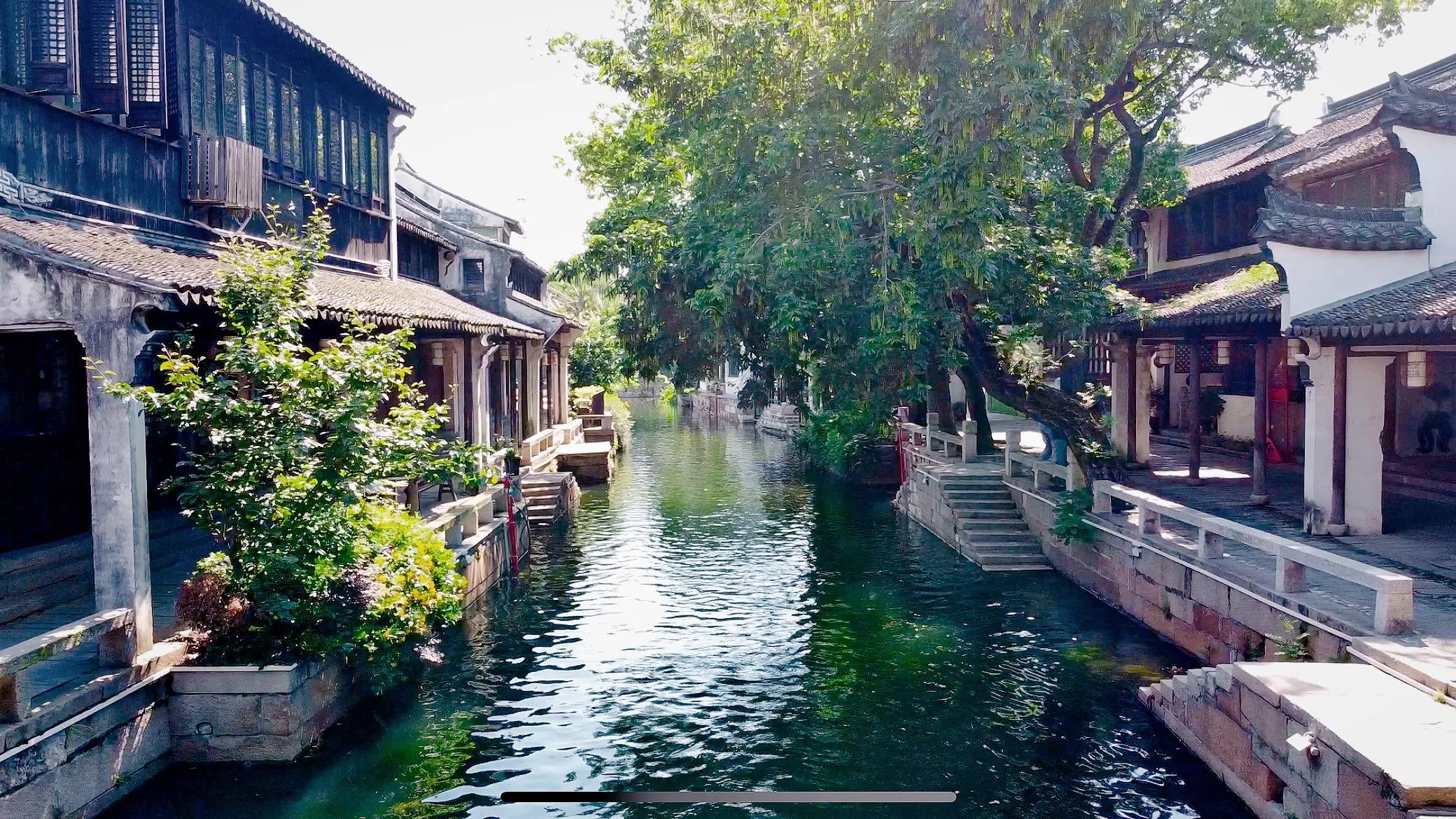


此生最好的运气
就是遇见了你
刚好你也爱我
我也爱着你
在这个尴尬年纪
我不再是一个人
多幸运能和你在一起
此生最大的欢喜
就是等到了你
是你带我走出
那片沼泽地
从我们交换信物
深情相望那刻起
我的余生就是你
我希望五十年以后
你还能在我左右
和你坐在摇椅里
感受那夕阳的温柔
听微风轻轻地吹
听河水慢慢地流
再聊聊从前日子
刚谈恋爱的时候
我希望五十年以后
你还能在我左右
那时都已白了头
还想听你叫我丫头
轻轻牵着你的手
静静靠在你胸口
这个画面是不是就叫做长相厮守
此生最大的欢喜
就是等到了你
是你带我走出
那片沼泽地
从我们交换信物
深情相望那刻起
我的余生就是你
我希望五十年以后
你还能在我左右
和你坐在摇椅里
感受那夕阳的温柔
听微风轻轻地吹
听河水慢慢地流
再聊聊从前日子
刚谈恋爱的时候
我希望五十年以后
你还能在我左右
那时都已白了头
还想听你叫我丫头
轻轻牵着你的手
静静靠在你胸口
这个画面是不是就叫做长相厮守
我希望五十年以后
你还能在我左右
那时都已白了头
还想听你叫我丫头
轻轻牵着你的手
静静靠在你胸口
这个画面是不是就叫做长相厮守


《曾国藩家书》是曾国藩的书信集,成书于清19世纪中叶。该书信集记录了曾国藩在清道光30年至同治10年前后达30年的翰苑和从武生涯,近1500封。所涉及的内容极为广泛,是曾国藩一生的主要活动和其治政、治家、治学之道的生动反映。曾氏家书行文从容镇定,形式自由,随想而到,挥笔自如,在平淡家常中蕴育真知良言,具有极强的说服力和感召力。尽管曾氏留传下来的著作太少,但仅就一部家书中可以体现他的学识造诣和道德修养。曾国藩作为清代著名的理学家、文学家,对书信格式极为讲究,显示了他恭肃、严谨的作风。
卷一(1840——1852)
曾国藩自1840年得授翰林院检讨,到1849年已经升任礼部侍郎,十年七迁,跃升十级。成为二品大员。他在写给朋友的信中说:“回思善化馆中同车出入,万顺店中徒步过从,疏野之性,肮脏之貎,不特仆不自意其速化至此,即知好三数人,亦不敢为此不近人情之称许。”可见,曾国藩有点“朝为田舍郎,暮登天子堂”的味道。
- 道光二十一年四月十七日 禀祖父母·请给族人以资助
- 道光二十二年二月二十四日 禀父母·闻九弟习字长进
- 道光二十二年三月十一日 禀父母·教弟写字养神
- 道光二十二年四月二十七日 禀祖父母·要叔父教训诸弟以管家事
- 道光二十二年七月初四日 禀父母·劝两弟学业宜精
- 道光二十二年九月十七日 禀祖父母·述与英国议和
- 道光二十二年九月十八日 致诸弟·述求学之方法
- 道光二十二年十月二十六日 致诸弟·明师益友虚心请教
- 道光二十二年十一月十七日 致诸弟·读书宜立志有恒
- 道光二十二年十二月二十日 致诸弟·勉励自立课程
- 道光二十三年正月十七日 禀父母·述家和万事兴
- 道光二十三年正月十七日 致诸弟·讲读经史方法
- 道光二十三年二月十九日 禀父母·教弟以和睦为第一
- 道光二十三年三月十九日 致诸弟·喜述大考升官
- 道光二十三年三月二十三日 禀祖父母·报告荣升侍讲
- 道光二十三年四月二十日 禀父母·述盘查国库巨案
- 道光二十三年六月初六日 禀祖父母·报告考差信
- 道光二十三年六月初六日 致六弟·述学诗习字之法
- 道光二十三年六月初六日 致诸弟·劝述孝悌之道
- 道光二十四年正月二十五日 禀父母·寄银还债济人
- 道光二十四年正月二十六日 致诸弟·交友拜师宜专一
- 道光二十四年二月十四日 致诸弟·温经更增长见识
- 道光二十四年三月初十日 禀祖父母·先馈赠亲戚族人
- 道光二十四年三月初十日 致诸弟·述接济亲戚族人之故
- 道光二十四年五月十二日 致诸弟·勿为时文所误
- 道光二十四年七月二十日 禀父母·劝弟勿夜郎自大
- 道光二十四年八月二十九日 禀祖父母·赠亲戚族人数目
- 道光二十四年八月二十九日 致诸弟·劝弟谨记进德修业
- 道光二十四年九月十九日 禀父母·教弟注重看书
- 道光二十四年九月十九日 致诸弟·必须立志猛进
- 道光二十四年十月二十一日 致诸弟·劝弟切勿恃才傲物
- 道光二十四年十一月二十一日 致诸弟·读书必须有恒心
- 道光二十四年十二月十八日 致诸弟·教弟婚姻大事须谨慎
- 道光二十五年正月初十日 致诸弟·家中务请略有积蓄
- 道光二十五年二月初一日 致诸弟·按月作文寄京
- 道光二十五年三月初五日 致诸弟·取款及托带银
- 道光二十五年四月二十四日 致诸弟·必须亲近良友
- 道光二十五年五月初五日 致诸弟·喜述升詹事府右春坊右庶子
- 道光二十五年五月二十九日 禀父母·万望匆入署说公事
- 道光二十五年六月十九日 禀父母·取借款须专人去
- 道光二十五年九月十七日 禀叔父·不辞劳苦料理朋友的丧事
- 道光二十五年十月初一日 禀叔父母·报告升翰林院侍读学士
- 道光二十五年十月二十九日 禀父母·敬请祖父换蓝顶
- 道光二十五年十一月二十日 禀父母·拟为六弟纳监
- 道光二十六年正月初三日 禀父母·报告两次兼职
- 道光二十六年三月初一日 致诸弟·交友须勤加来往
- 道光二十六年三月二十五日 禀父母·请勿悬望得差
- 道光二十六年四月十六日 致诸弟·评文字之优劣
- 道光二十六年五月十七日 禀父母·附呈考差诗文
- 道光二十六年闰五月十五日 禀父母·贺六弟成就功名
- 道光二十六年六月十七日 禀叔父母·请兑钱送人
- 道光二十六年六月二十七日 致诸弟·切勿占人便宜
- 道光二十六年九月十九日 禀父母·不敢求非分之荣
- 道光二十六年十月十五日 禀父母·请四弟送归诰轴
- 道光二十七年二月初十日 禀父母·谨遵家命一心服官
- 道光二十七年六月十八日 致诸弟·述升内阁学士
- 道光二十七年七月十八日 禀父母·勿因家务过劳
- 道光二十八年正月二十一日 致诸弟·无时不想回家省亲
- 道光二十八年五月初十日 致诸弟·告诫弟弟要清白做人
- 道光二十八年十二月初十日 致诸弟·述改建祖屋之意见
- 道光二十九年二月初六日 致诸弟·喜述补侍郎缺
- 道光二十九年四月十六日 禀父母·做事当不苟不懈
- 道光二十九年七月十五日 致诸弟·节俭置田以济贫民
- 道光二十九年十月初四日 致诸弟·述奉旨为较射大臣
- 道光三十年正月初九日 致诸弟·迎养父母叔父
- 咸丰元年三月十二日 致诸弟·具奏言兵饷事
- 咸丰元年五月十四日 致诸弟·进谏言戒除骄矜
- 咸丰元年八月十九日 致诸弟·详述办理巨盗及公议粮饷事
- 咸丰元年九月初五日 致诸弟·劝宜力除牢骚
- 咸丰二年七月二十六日 谕纪泽·料理丧母之后事离京
- 咸丰二年八月初八日 谕纪泽·携眷赶紧出京
- 咸丰二年九月十八日 谕纪泽·家眷在京须一切谨慎
卷二(1853——1866)
1853年1月(咸丰三年),被太平天国搞得焦头烂额、心急如焚的咸丰帝,情急之下诏令曾国藩办理团练,任命曾国藩为湖南团练大臣。历史又一次给了曾国藩展示才能的机会。借着清政府急于寻求力量镇压太平天国的时机,曾国藩因势在其家乡湖南一带,依靠师徒、亲戚、好友等复杂的人际关系,建立了一支地方团练,称为湘勇,并派人赴广东购买西洋火炮,筹建水师。1854年(咸丰四年)2月25日,奉命率师出征太平军,发布《讨粤匪檄》。1864年7月19日,湘军攻陷天京,太平军宣告失败。1865年5月26日,接上谕:率军赴山东剿捻。
- 咸丰四年八月十一日 致诸弟·在家宜注重勤敬和
- 咸丰四年九月十三日 致诸弟·勿使子侄骄奢淫佚
- 咸丰四年十月二十二日 致诸弟·读书宜选一明师
- 咸丰四年十一月初七日 致诸弟·带归度岁之资
- 咸丰五年四月二十日 致诸弟·述营中急需人才
- 咸丰五年七月初八日 致诸弟·调彭雪琴来江
- 咸丰五年九月三十日 致诸弟·喜闻九弟得优贡
- 咸丰六年九月初十日 致四弟·不宜露头角于外
- 咸丰六年十月初二日 谕纪泽·宜教家人勤劳持家
- 咸丰六年十月初三日 致四弟·宜常在家侍侯父亲
- 咸丰六年十一月初七日 致四弟·不宜常常出门
- 咸丰六年十一月二十九日 致四弟·得两弟为帮手
- 咸丰七年九月二十二日 致九弟·劝宜息心忍耐
- 咸丰七年十月初四日 致九弟·劝弟须保护身体
- 咸丰七年十一月初五日 致九弟·交人料理文案
- 咸丰七年十二月十四日 致九弟·做人须要有恒心
- 咸丰七年十二月二十一日 致九弟·愧对江西绅士
- 咸丰八年正月十一日 致九弟·为政切不可疏懒
- 咸丰八年正月十四日 致九弟·顺便可以周济
- 咸丰八年正月二十九日 致九弟·周济受害绅民
- 咸丰八年二月十七日 致九弟·患难与共勿有遗憾
- 咸丰八年三月初六日 致九弟·言凶德有二端
- 咸丰八年三月二十四日 致九弟·愿共鉴诫二弊
- 咸丰八年三月三十日 致九弟·注意平和二字
- 咸丰八年四月初九日 致九弟·宜以求才为大事
- 咸丰八年四月十七日 致九弟·述捐银作祭费
- 咸丰八年五月初五日 致九弟·劝捐银修祠堂
- 咸丰八年五月初六日 致九弟·述弟为政优于带兵
- 咸丰八年五月三十日 致九弟·归家料理祠堂
- 咸丰八年七月二十一日 致四弟、季弟·在家里注重种蔬等事
- 咸丰八年八月初四日 致九弟·拟保举李次青
- 咸丰八年十一月二十三日 致诸弟·宜兄弟和睦又实行勤俭二字
- 咸丰八年十二月十六日 致诸弟·述家庭不可说利害话
- 咸丰八年十二月二十日 致诸弟·述六弟妇治家贤慧而命最苦
- 咸丰九年正月十一日 致诸弟·述起屋造祠堂
- 咸丰九年六月初四日 致四弟·读书不可太疏忽
- 咸丰十年三月二十一日 致九弟·宜平骄矜之气
- 咸丰十年三月二十四日 致九弟、四弟·早起乃健身之妙方
- 咸丰十年闰三月二十九日 致四弟·治家有八字诀
- 咸丰十年五月十四日 致四弟·居乡要诀宜节俭
- 咸丰十年六月初十日 致九弟、季弟·述杨光宗不驯
- 咸丰十年六月二十八日 致沅弟、季弟·嘱文辅卿二语
- 咸丰十年七月初八日 致沅弟、季弟·随时推荐出色的人
- 咸丰十年七月十二日 致九弟、季弟·以勤字报君以爱民二字报亲
- 咸丰十年十月二十日 致九弟、季弟·做后辈宜戒骄横之心
- 咸丰十年十月二十四日 致四弟·教子侄宜戒骄奢佚
- 咸丰十年十月二十四日 致九弟、季弟·须戒傲惰二字
- 咸丰十年十二月初四日 致四弟·教子侄做人要谦虚勤劳
- 咸丰十年十二月二十四日 致四弟·用药须小心谨慎
- 咸丰十一年正月初四日 致四弟·教子弟去骄气惰习
- 咸丰十一年二月初四日 致四弟·不宜非议讥笑他人
- 咸丰十一年二月二十四日 致四弟·教子弟牢记祖训八字
- 同治元年二月二十一日 致季弟·述长江厘卡太多
- 同治元年三月初三日 致九弟、季弟·述筹办粤省厘金
- 同治元年三月二十四日 致九弟·述告办事好手不多
- 同治元年四月初六日 致九弟·述抽本省之厘税
- 同治元年四月十二日 致九弟·宜多选好替手
- 同治元年五月十五日 致九弟、季弟·做人须清廉谨慎勤劳
- 同治元年五月二十八日 致九弟、季弟·必须自立自强
- 同治元年六月初二日 致九弟、季弟·述有负朋友
- 同治元年六月二十日 致九弟·望勿各逞己见
- 同治元年七月二十日 致九弟、季弟·治身宜不服药
- 同治元年七月二十五日 致九弟、季弟·服药不可大多
- 同治元年闰八月初四日 致四弟·劝弟须静养身体
- 同治元年九月初四日 致四弟·与官相见以谦谨为主
- 同治元年十一月十四日 致四弟·教弟必须爱惜物力
- 同治二年正月初三日 致九弟·述兄弟同获圣恩
- 同治二年正月十四日 致四弟·惜福贵乎勤俭
- 同治二年正月十七日 致九弟·申请辞退一席
- 同治二年正月十八日 致九弟·述让纪瑞承荫
- 同治二年正月二十七日 致九弟·述纪梁宜承荫
- 同治二年三月二十四日 致九弟·述治事宜勤军
- 同治二年四月初一日 致九弟·述奏议乃为臣之事
- 同治二年四月十六日 致九弟·不必再行辞谢
- 同治二年四月二十七日 致九弟·处事修身宜明强
- 同治二年六月初一日 致九弟·欣悉家庭和睦
- 同治二年七月二十三日 致九弟·战事宜自具奏
- 同治二年十一月十二日 致九弟·只问积劳不问成名
- 同治三年三月初四日 致四弟·宜劝诸侄勤读书
- 同治三年四月十三日 致九弟·万望毋恼毋怒
- 同治三年五月初十日 致九弟·宜以自养自医为主
- 同治三年五月二十三日 致九弟·凡郁怒最易伤人
- 同治三年八月初四日 致四弟·教子勤俭为主
- 同治三年十二月十六日 致四弟、九弟·宜居家时苦学
- 同治四年正月二十四日 致九弟·讲求奏议不迟
- 同治四年五月二十五日 致四弟、九弟·谆嘱瑞侄用功
- 同治四年十一月十六日 致四弟、九弟·千里寄银礼轻义重
- 同治五年六月初五日 致四弟·述养身有五事
- 同治五年九月十二日 致九弟·宜自修处求强
- 同治五年十二月初六日 致四弟·送银子共患难者
卷三(1867——1872)
1867年(同治六年)3月,在江南制造总局下设造船所试制船舰,同时拟设译书馆。1872年(同治十一年)2月27日,曾国藩领衔上奏,促请对“派遣留学生一事”尽快落实。并提出在美国设立“中国留学生事务所”;在上海设立幼童出洋肄业局。1870年(同治九年)6月,天津教案发生,“忠君”与“贵民”两种观念又一次将他夹在了中间。对天津教案的处置引发了轩然大波,让曾国藩“积年清望几于扫地以尽”,这也成为其一生憾事。两年后,曾国藩去世。朝廷闻讯,辍朝三日。追赠太傅,谥文正,祀京师昭忠,贤良祠。


Dominio de Pingus is a Spanish winery located in Quintanilla de Onésimo in Valladolid province with vineyards in La Horra area of the Ribera del Duero region. The estate's flagship wine, Pingus, is considered a "cult wine", sold at extremely high prices while remaining very inaccessible,[1][2] and commands an average price of $811 per bottle.[3]
The winery also produces a second wine, Flor de Pingus, and a special cuvée, Ribera del Duero "Amelia". Recently, Dominio de Pingus has founded a joint project with local grape producers to make an old vine tempranillo called "PSI".
Dominio de Pingus was established in 1995 by Danish oenologist Peter Sisseck, also manager of the Pesquera de Duero estate Hacienda Monasterio.[4] On the estate's winemaking philosophies, Sisseck has stated, "The vines in my plots are very old. They have never been fertilised nor treated with pesticides and all grow following the traditional en vaso system. They are perfect."[4]
About the first 1995 vintage of Pingus, Robert Parker declared, "One of the greatest and most exciting wines I have ever tasted".[5] With a very limited first vintage production, only 325 cases were made with prices initially set at US$200 per bottle, it became yet more scarce when in November 1997 the ship transporting a U.S. bound shipment of 75 cases disappeared somewhere off the Azores in the North Atlantic Ocean.[6] The shipwreck resulted in a dramatic reaction in the US market, with prices soon rising to $495 per bottle.[5][6]
At the Ronda WineCreator conference of April 2008, Sisseck was angered by suggestions by Decanter editor Guy Woodward that some winemakers make wines to suit the palates of certain critics. In response he called Woodward's remarks arrogant for implying winemakers do not have their own opinions, adding, "I don't even think it is possible to do this."[7]
In 2007 it was announced that the Spanish government had approved plans to expand highway roads through the vineyards of Dominio de Pingus and other wineries, which was met with strong opposition by Sisseck who called it a "vengeful measure".[8]
Planted with very old vines of Tinto Fino, i.e. Tempranillo, the vineyards are 2.5 hectares (6.2 acres) in Barrosso with vines exceeding 65 years and 1.5 hectares (3.7 acres) in San Cristobal with vines older than 70 years, and the unusually low average yield of 12 hL per hectare. Since 2000, the viticulture has been biodynamic. Of the annual production of Pingus there is typically less than 500 cases, though in poor vintages no Pingus is made.
The production of the second wine Flor de Pingus, also 100% Tempranillo, is made with fruit from rented vineyards in the La Horra zone, with vines older than 35 years. Since the 2005 vintage, the viticulture has been biodynamic. The annual production is on average 4,000 cases.
Additionally there has been the single barrel cuvée, Ribera del Duero "Amelia", made from a vineyard parcel of 100+ year old vines with an average yield of 10 hL per hectare, with biodynamic viticulture since its initial 2003 vintage. The 2005 vintage had a production of 25 cases.
"PSI" is a joint project based on fruit produced by local grape growers from old tempranillo vines. The goal is to help grape producers and save old vines. Project was founded in 2006, first vintage was 2007. Grape growers are encouraged to employ biodynamic or organic vineyard management practices. The wine is made by Peter Sisseck and Pablo Rubio and sold under producer name Bodegas y Viñedos Alnardo. Vinification takes place in large concrete vats and aging in concrete and wooden tanks and oak barrels. Production of PSI 2009 was 9,600 cases, PSI 2010 was 16,600 cases.


上有呀天堂 下呀有苏杭
城里有园林 城外有水乡
哎呀 苏州好风光 好呀好风光 哎呀哎呀
春季里杏花开 雨中采茶忙
夏日里荷花塘 琵琶丁冬响
摇起小船 轻弹柔唱 桥洞里面看月亮
桥洞里面看月亮 哎呀哎呀
秋天里桂花香 庭院书声朗
冬季里腊梅放 太湖连长江
推开门窗 青山绿水 巧手绣出新天堂
巧手绣出新天堂 哎呀哎呀
上有呀天堂 下呀有苏杭
古韵今风 天下美名扬 哎呀
说不尽苏州好呀好风光
哎呀哎呀
哎哎呀 说不尽苏州好呀好风光
哎呀哎呀 说不尽苏州好呀好风光

温从水从昷,昷,送食于囚,适度增加。本意为:适度增加水温,暖水。引申为:适中的温度。古昷、温同。
良从富从亡,亡为隐藏、看不到。本意为:隐藏着的家室充盈,才能充分之意。若“发虑宪求善良”,求的不是我们现在概念的“善良”之人,而是有治国之才与执事之能的善人与良人。
恭《尔雅》:恭,敬也。按:先秦时期恭、敬就是现今礼节、礼貌的概念。恭受礼所节制,以现今的概念就是礼也得按规定而行,不足不恭,恭过则谄。
俭从人从佥。佥为两边、两面。本意为:前后一致。凡从佥的字皆有佥之两面之意。若剑即为两面一致的刀;捡即为以手提起使其两面可见;检即为查木之内外等。
让从言从襄。襄为埋种扣合使二为一,增实于其内也。因此谥法云:辟地有德曰襄。本意为:相责以推贤。《说文》:相责,让也。《国语·晋语》让,推贤也。
温良恭俭让:处事得当、才能卓著、遵纪守礼、表里如一、学识丰富于国有利。
民逐利,以利驱之,君亦人也,闻政以利国而求之,夫子之求之也,其诸异乎人之求之与。

(Quelle:www.chinakongzi.org)

Torino (AFI: /toˈrino/[5], ascolta[?·info]; Turin in piemontese [tyˈriŋ], ascolta[?·info] [6]) è un comune italiano di 852 223 abitanti (al 30 settembre 2021)[2], quarto comune italiano per popolazione e capoluogo dell'omonima città metropolitana e della regione Piemonte. Cuore di un'area metropolitana, Torino è il terzo complesso economico-produttivo del Paese e costituisce uno dei maggiori poli universitari, artistici, turistici, scientifici e culturali d'Italia. Nel suo territorio sono inoltre presenti aree ed edifici inclusi in due beni protetti dall'UNESCO: alcuni palazzi e zone facenti parte del circuito di residenze sabaude in Piemonte (patrimonio dell'umanità[7]) e l'area delle colline del Po (riserva della biosfera).
Città dalla storia bimillenaria, fu fondata probabilmente nei pressi della posizione attuale, attorno al III secolo a.C., dai Taurini, quindi trasformata in colonia romana da Augusto col nome di Iulia Augusta Taurinorum nel I secolo a.C.. Dopo il dominio ostrogoto, fu capitale di un importante ducato longobardo, per poi passare, dopo essere divenuta capitale di marca carolingia, sotto la signoria nominale dei Savoia nell'XI secolo. Città dell'omonimo ducato, nel 1563 ne divenne capitale. Dal 1720 fu capitale del Regno di Sardegna (anche se solo de facto fino alla fusione perfetta del 1847, quando lo divenne anche formalmente),[8] Stato che nel XIX secolo avrebbe portato all'unificazione italiana e che fece di Torino la prima capitale del Regno d'Italia (dal 1861 al 1865).
Sede nel 2006 dei XX Giochi olimpici invernali, nel 2022 della 66ª edizione dell'Eurovision Song Contest[9], città natale di alcuni fra i maggiori simboli del Made in Italy nel mondo, come il Vermut, il cioccolato gianduja e il caffè espresso, è il fulcro dell'industria automobilistica italiana, nonché importante centro dell'editoria, del sistema bancario e assicurativo, delle tecnologie dell'informazione, del cinema, dell'enogastronomia, del settore aerospaziale, del disegno industriale, dello sport e della moda.



















